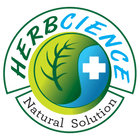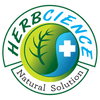Even today in this updated generation, people in rural areas prefer natural remedies for cosmetic purposes like milk, aloe vera, neem, turmeric, rose, etc used to beautify their skin. In the present busy schedule of every individual, we are mainly aiming in giving you a skincare routine in a very minimal time with maximum results in the form of face masks which are formed by choosing them with at most care and intelligence.
There’s nothing quite easier than a face mask that acts as a vehicle for your skincare routine. The right mask based on your skin not just does the indulgent treatment, but also helps in tackling skin concerns and conditions, from dryness and dehydration to large pores and acne.
Continue reading to learn about the face masks and techniques for applying them. The main advantage of using herbal cosmetic is that it is pure and does not have any side effects on your skin.
About Face Mask
Cosmetics is not a new thing that is given prime importance worldwide. Cosmetics are generally defined as the products used for cleansing, beautifying, promoting attractiveness, and increasing skin care. From ancient times in India, different herbs are for cosmetic purposes.
In Ayurveda, the herbal drugs are grouped under the name called “Mukha lepa” used for facial therapy or rejuvenation therapy. These herbs are made into a fine paste and smeared on the face to treat acne, pimple, scars, marks, and pigments After application, its usually left on the skin for fifteen to twenty minutes after which all the water content is evaporated, resulting in a film which contracts and hardens over time.
The warmthness produced during this drying period stimulates the colloidal adsorption of the herbal drugs and also prepares the mask to remove the dirt and grease from the skin of the face. The face pack can be removed from the skin surface. Herbal face packs increase the fairness, complexion, and smoothness of skin herbal face packs might assist us the most if we use them following the type of skin we have.
Benefits Of Face Mask
- Moisturizes your dry skin and keeps it hydrated
- Refines large pores
- Improvises your skin texture
- Cleans your skin by absorbing excess oil and dirt
- Minimizes the appearance of fine lines and wrinkles
- Increases elasticity
- Brightens dark spots
How Often Should You Use A Face Mask?
Face masks can be applied as a daily skincare routine or on alternative days or twice a week based on your requirement. Masking can be followed by cleansing, toning, and applying a facial essence. Following these steps helps to clear impurities and excess oil, provide a base layer of hydration and prepare your skin for better absorption.
Steps To Be Followed During Facial Application:
Apply Mask Evenly:
You may not be aware of it! Covering your face with a face mask with the right technology plays an important role. A very even thin layer must be applied over the skin. We generally recommend adding two to three drops of water/ rose water to your product and warming it between your hands before massaging it into your face, especially if the product is gel-based. This will allow for more slip, easier application, and (bonus!) less product waste.
Remember To Include Your Neck portion too!
It is very important to include your neck area too. Because these areas take on the visible signs of aging very much earlier than the face due to their exposure to environmental stress and daily movements and they’re easily forgotten as a part of the skincare routine.
How thick must you apply the facemask?
It must be a Thickness of a buffalo’s skin. [11] He says that Pralepa is thinner and Pradeha is thicker than buffalo’s skin. It means that the actual thickness of the buffalo’s skin may be taken as the thickness in between both, which will be the thickness of Alepa.
The same is the opinion of Sharangadhara regarding the thickness of Lepa. The thickness of buffalo’s skin may be obtained as 2.8 to 3.2 mm. Commentators have quoted the thickness of different Lepa as below: [12] Lepa Thickness Doshaghna lepa - 1/4 angula (0.48 cm) Vishaghna lepa - 1/3 angula (0.65 cm) Varnya lepa - 1/2 angula (0.97 cm) Note: 1 Angula = 1.95 cm.
Leave On For 5-10 Minutes:
In general, Most masks are kept for five to 15-20 minutes, but the duration can vary from mask to mask. Some face masks act quickly to get dry and can be removed after a short period and others can be left on as an overnight treatment for deep hydration of your skin. We always advise you to review the label of directions to apply your particular product.
Remove Gently With A cotton swab.
you cannot get the expected benefits of your face mask by aggressively scrubbing it off. Use a cotton swab dipped in lukewarm water to gently remove the mask from your face. If you choose to use a washcloth, ensure it’s clean and has soft fibers that don't produce local irritation to your skin.
Home Remedies As Face Masks
Multani Mitti (Calcium bentonite)
Multani mitti helps the skin in different ways like diminishing pore sizes, removing blackheads and whiteheads fading freckles, soothing sunburns, cleansing skin, improving blood circulation, and complexion, reducing acne, and blemishes, and offering the skin a healthy glow because they are rich in nutrients. Multani mitti is rich in magnesium chloride.
Turmeric (Curcuma longa)
Turmeric is mainly used to rejuvenate the skin. It delays wrinkles, as well as having additional qualities like antibacterial, antiseptic, and anti-inflammatory. It is best to source a blood purifier. It is effective in the treatment of acne due to its antiseptic and antibacterial properties that fight
pimples and breakouts to provide a youthful glow to your skin. It also lessens the sebaceous glands' production of oil.
Aloe Vera (Aloe barbadensis)
Aloe vera is an excellent skin moisturizer. Aloe vera moisturizes, rehydrates, and maintains the skin's youthful appearance. Aloe vera has anti-microbial properties rendering it ideal to deal with acne and pimples. Numerous nutrients, including glycerin, sodium palmate, sodium carbonate, sodium palm kernelate, and sorbitol.
Sandalwood (Santalum alba)
Sandalwood has anti-tanning and anti-aging properties. In addition, it benefits the skin in a variety of ways, including through its emollient, antibacterial, cooling, astringent, soothing, and healing characteristics.
Orange peel (Citrus reticulate)
The citrus fruit orange provides a variety of nutrients, including calcium, potassium, magnesium, and vitamin C. It guards against oxidative stress, skin dehydration, and free radical damage. Additionally, it prevents wrinkles, aging, acne, and blemishes and has an instant glow quality.
Neem (Azadirachta indica)
Neem is antibacterial, anti-inflammatory, and very helpful for oily and acne-prone skin. Different chemical components' antibacterial, anti-inflammatory, and anti-oxidant properties have an anti-acne impact.
ShwetChandan (Santalum Album)
White Sandalwood powder is used to cure various skin allergies. It has a cooling and soothing action that keeps the skin bright, fair, and healthy while shielding it from environmental contamination. Due to its antibacterial characteristics, sandalwood is used to treat a variety of skin conditions and to eliminate scars, acne, and other undesirable skin conditions.
Raktachandan (Santalum album)
Rakta chandan (RedSandalwood Powder) has curative value in skin allergies. The cooling and calming properties of Raktha Chandan powder shield the skin from the damaging effects of environmental pollution and maintain cool, clear, and healthy skin.
Sandalwood is advantageous An ayurvedic herb with antibacterial qualities is used to treat scar removal and a variety of skin conditions.
Conclusion
Pollution and harsh climates badly affect the skin and these effects can be countered by the regular usage of face packs The benefits of herbal face packs are their nontoxic nature. It nourishes the face. This face pack nourishes your skin. It aids in the removal of scars, marks, pimples, and acne. Face pack exfoliates dead skin cells and provides a soothing, calming, and cooling effect to your skin.
It also restores the natural glow of your skin in a short period. Frequent use of natural face packs helps in improving your skin texture and complexion. They aid in keeping skin cells elastic and prevent the skin from aging too quickly.
Natural face can be used to successfully control wrinkles, fine lines, and skin loosening. We discovered great qualities in the face packs in our study, but additional research is required to determine their full potential as cosmetics.
Herbal drugs are collected by nature, naturally processed, and made into easily available products by our HERBCIENC products. They make it simpler for you to maintain healthy skin despite your busy daily schedule.
Why HERBCIENCE?
Herbcience is a 100% transparent brand and all the products are developed by doctors, with
fresh extractions of herbs. They are 100% Natural certified by ECOCERT- COSMOS Natural, a European Standard, AYUSH, Govt. of India, and compliant with MADE SAFE, USA. 100% Natural products to treat blackheads are as follows:
Natural Glow PRO-COLLAGEN FACE PACK
Product Benefits:
- Skin Whitening
- Anti - Acne
- Skin Nourishment
Frequently asked questions:
1. Does the skin get dry on keeping the face mask in long run?
Ans: In most cases, the answer is yes. Based on the ingredient of your face mask it differs.
2. How to decide the time of face mask removal?
Ans: Remove the face mask before it gets dried completely. The duration may differ from one mask to another.
3. Is Multani mitti good for all types of skin?
Ans: yes it suits all skin types. But most suitable for oily skin.
References
- https://www.researchgate.net/publication/318872267_FORMULATION_AND_EVALUATION_OF_COSMETIC_HERBAL_FACE_PACK_FOR_GLOWING_SKIN
- https://opendermatologyjournal.com/VOLUME/11/PAGE/72/FULLTEXT/
- https://www.mchemist.com/herboglo/pdf/4%20rakta%20chandan.pdf
- https://core.ac.uk/download/pdf/333819699.pdf



